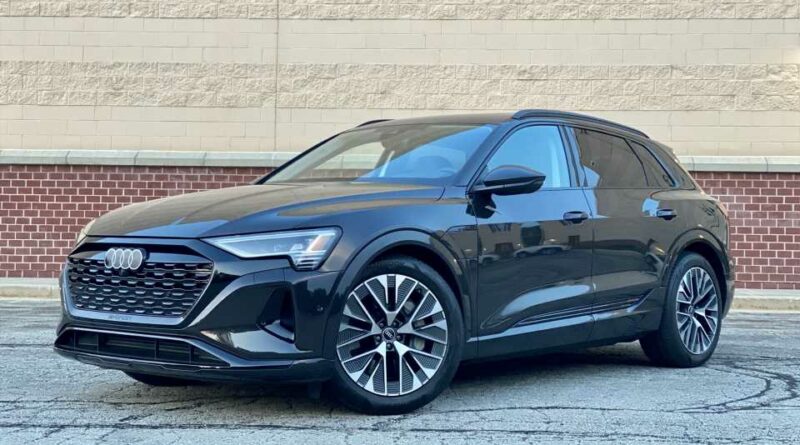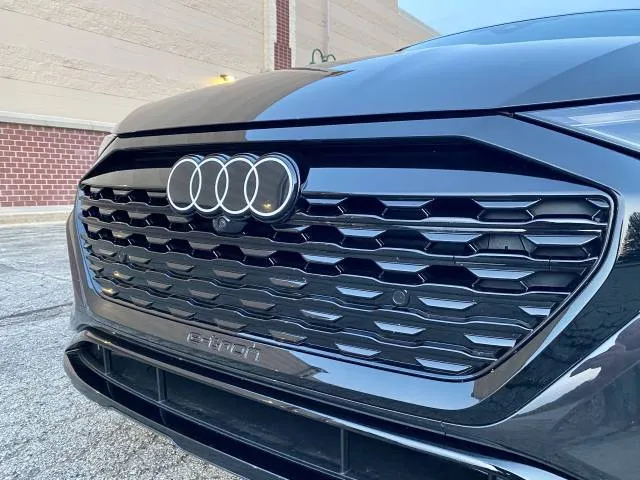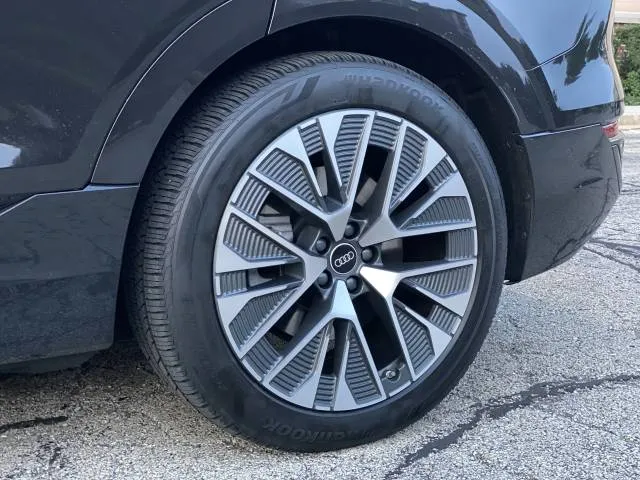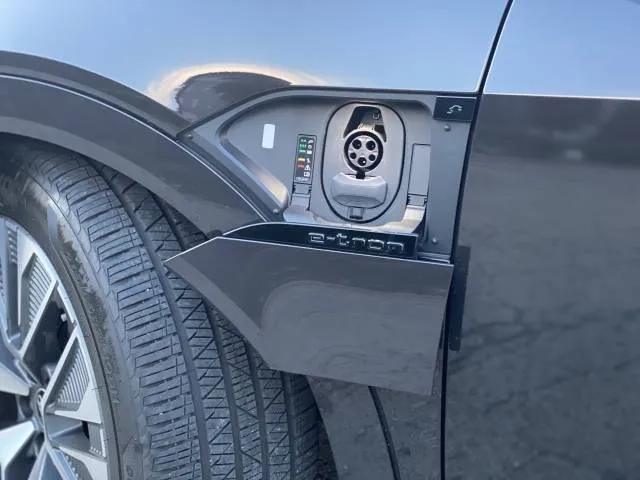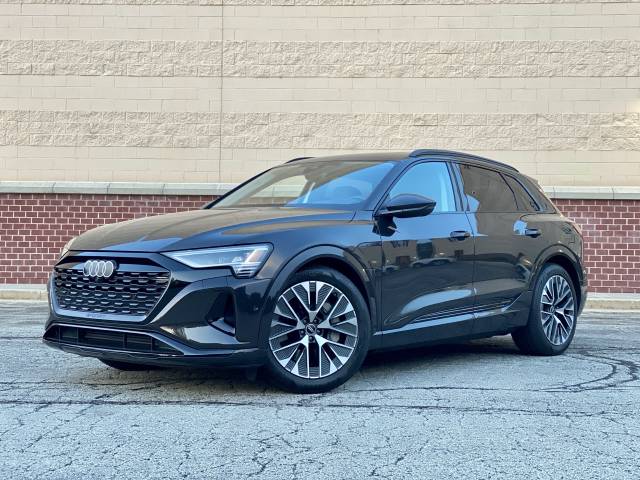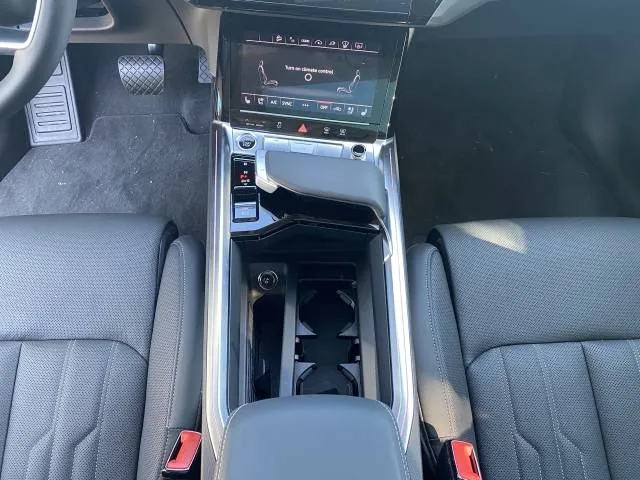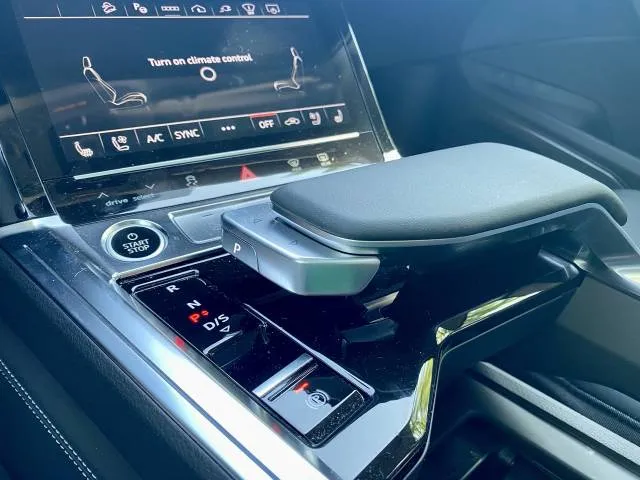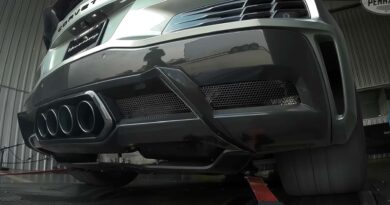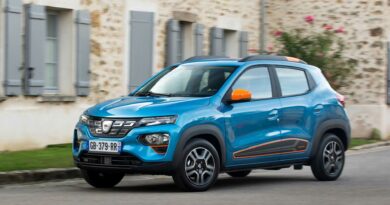Test drive: 2024 Audi Q8 E-Tron builds a better bridge to EVs
The 2024 Audi Q8 E-tron may sound new, but it’s an evolution of the luxury electric SUV that launched new in 2019. Luxury is its predominant trait, more so than its electric propulsion or its SUV format.
When the E-Tron first arrived, it was the first mid-size electric crossover SUV. The Jaguar I-Pace beat it to the punch, but it was smaller and its ticket has since been punched: it will be discontinued in 2025. Then there was the three-row Tesla Model X and its gull-wing doors.
The E-Tron was the bridge electric vehicle, similar in style and interior functions to its internal combustion counterpart. That’s even more the case for the redesigned E-Tron, renamed Q8 E-Tron. It adopts the Q8 name shared with the gas flagship crossover SUV to reflect that the Q8 E-Tron serves as the electric flagship of the growing E-Tron electric family. The Q4 E-Tron sits at the entry point, similar to the VW ID.4, and expect this taxonomy to make more sense as combustion vehicles are phased out: By 2026, every new Audi introduced will be a full battery electric vehicle—although the gasoline models will continue to be sold for years.
A weeklong loan proved that the second-generation Q8 E-Tron fixed where the E-Tron came up short, especially on range, and also improved on its luxury flagship pedestal. The handling and steering stand out, as does the sophistication of the top Prestige trim, but the Q8 hasn’t separated itself enough from its combustion counterpart when it comes to the open interior spaces that can be optimized by electric vehicle design.
Pro: Audi Q8 E-Tron controls that flow
Audi redesigned the Q8 E-Tron to optimize air flow and lower the coefficient of drag from 0.31 in the 2023 model to 0.29 in the 2024 Q8 E-Tron. This required several subtle but important design changes, including active grille shutters, larger front spoilers, more efficient fan-like wheel designs, and underbody covers that manage airflow and reduce drag.
Improvements to the magnetic field in the rear motor unit, as well as the use of new nickel-cobalt-aluminum (NCA) cells in the bigger 106-kwh battery pack (usable), conspire with the aero enhancements to boost the range from a below-average 226 miles in 2023 to an above-average 285 miles for the Q8 E-Tron.
Efficiency improves from 2.33 miles per kwh in 2023 to 2.44 miles per kwh in the 2024 Q8 E-Tron, based on EPA estimates.
Con: Audi Q8 E-Tron not as quick as other electric SUVs
Audi uses asynchronous motors on the E-Tron’s front and rear axle that combine to make 355 hp and 414 lb-ft of torque, or 402 hp and 490 lb-ft in Sport mode. The five other drive modes—Off-road, Dynamic, Efficiency, Comfort, and Auto—also tweak the steering feel, suspension tuning, and ride height via the standard air suspension that varies the ride height by 3.0 inches.
It’s a potent output in Sport mode, for sure, but it’s not as spry off the line as permanent magnet motors that create full torque at launch, instead of needing to wind up as in the case of the E-Tron’s asynchronous motors. Once upon a time, a 0-60 mph time of 5.6 seconds would have impressed for an SUV, especially one that weighs 5,798 pounds. In the electric age, it’s middling. But it’s quick enough for most drivers, and once moving there’s ample power to make most moves. The system favors rear-motor power, but the Q8 E-Tron stays balanced under full throttle, thanks to its suspension setup.
For more performance, check out the three-motor SQ8.
Pros: Audi Q8 E-Tron balances sharp handling with comfy ride quality
The real magic with the Q8 E-Tron is in its suspension and overall balance. With a five-link front and rear suspension supplemented with air springs and adaptive dampers, the Q8 E-Tron holds the road well without too much body lean yet in normal driving it acts like a comfy cruiser well-insulated from the road. It’s a neat trick that best complements SQ8 acceleration, I imagine.
Pro and Con: Q8 E-Tron lacks one-pedal regen
Audi believes one-pedal driving with a strong regenerative braking system bringing the car to a stop is inefficient and unnecessary. What it does instead is pretty cutting-edge, however. It programs the motors to do most of the braking, whether coasting or on the initial press of the brake pedal, leaving the friction brakes only for more urgent or last moment stops. There are three levels accessible via paddle shifters, but it defaults back to the lightest setting once the accelerator is pressed. The advanced element of this is how the system reads navigation or the car in front of you to automatically adjust how much the motors activate regen, even when adaptive cruise control is off. It takes some getting used to, but it becomes a lovely convenience as long as you accept that our overlord and master, The Machine, is smarter than us.
Pro: Audi Q8 E-Tron ratchets up precision steering
The steering feel in most electric crossovers is typically numb, as if the driver is so removed from what’s going on at the front wheels that the car could drive itself. The progressive steering feel in the Q8 E-Tron engages the driver in a more traditional fashion: it feels as if the steering wheel is an extension of the driver. Along with new front control arms and new bushings, a new steering rack with a quicker steering ratio (14.6:1 versus 15.8:1 in the outgoing model) mitigates the size and weight of the Q8 to feel much lighter on its 21-inch feet. Slight changes on the wheel lead to quick adjustments on the road. It instilled confidence and encouraged me to seek out winding roads.
Con: E-Tron interior space not optimized
The Q8 E-Tron shares a MLB Evo platform with several other larger crossovers in Volkswagen Group’s family of brands. Platform sharing isn’t the bugaboo for similarity it once was; the platforms are so modular as to be able to make distinctly different vehicles. For instance, the Q8 E-Tron is 3.1 inches shorter in length, and with a wheelbase that’s 2.8 inches shorter than the gas Q8. It’s also 1.6 inches shorter in height. But the interior of the E-Tron has the same wide center console, as if it has the Q8 AWD’s driveshaft running down a tunnel in the center of the car. It doesn’t. It’s wide enough to make the hips and knees feel pinched, especially compared to other electrics.
Pro and Con: Strange gear shifter doubles as grab handle
EVs seem to be a testing ground for engineers to toy with new shifter designs. Audi’s is almost like a thumb button sticking out from the side of a wide, flat grab pad instead of a handle. It takes some getting used to, but the pad is ergonomically perfect, and makes for a nice mount to extend the fingers and adjust the drive select buttons as well as the lower climate control screen. If it hadn’t been ingrained in me so long ago not to rest my hand on a manual gear shifter lest it wear out the gearbox prematurely, my hand might’ve rested on the grab pad far longer than it did.
Con: E-Tron makes artificial sounds
Some people like the artificial whir of motor sounds. I don’t. And I couldn’t turn it off. It’s subtle, but one of the charms of EVs is the silence.
The 2024 Audi Q8 E-Tron improves in the right ways, but this veteran electric crossover still lacks some of the splash of new EVs. That’s not a bad thing, especially as shoppers transition from combustion engines. It makes a fine bridge.
_______________________________________
2024 Audi Q8 E-Tron Quattro Prestige
Base price: $75,595, including $1,195 destination
Price as tested: $88,990
Drivetrain: 114-kwh battery pack (106 kwh usable) with two asynchronous motors rated at 402 hp and 490 lb-ft
EPA fuel economy: 285 miles of range, 81 MPGe, 2.4 miles per kwh
The pros: Improved range and efficiency, good handling and steering
The cons: Wide console, artificial sound, no one-pedal drive
Source: Read Full Article
